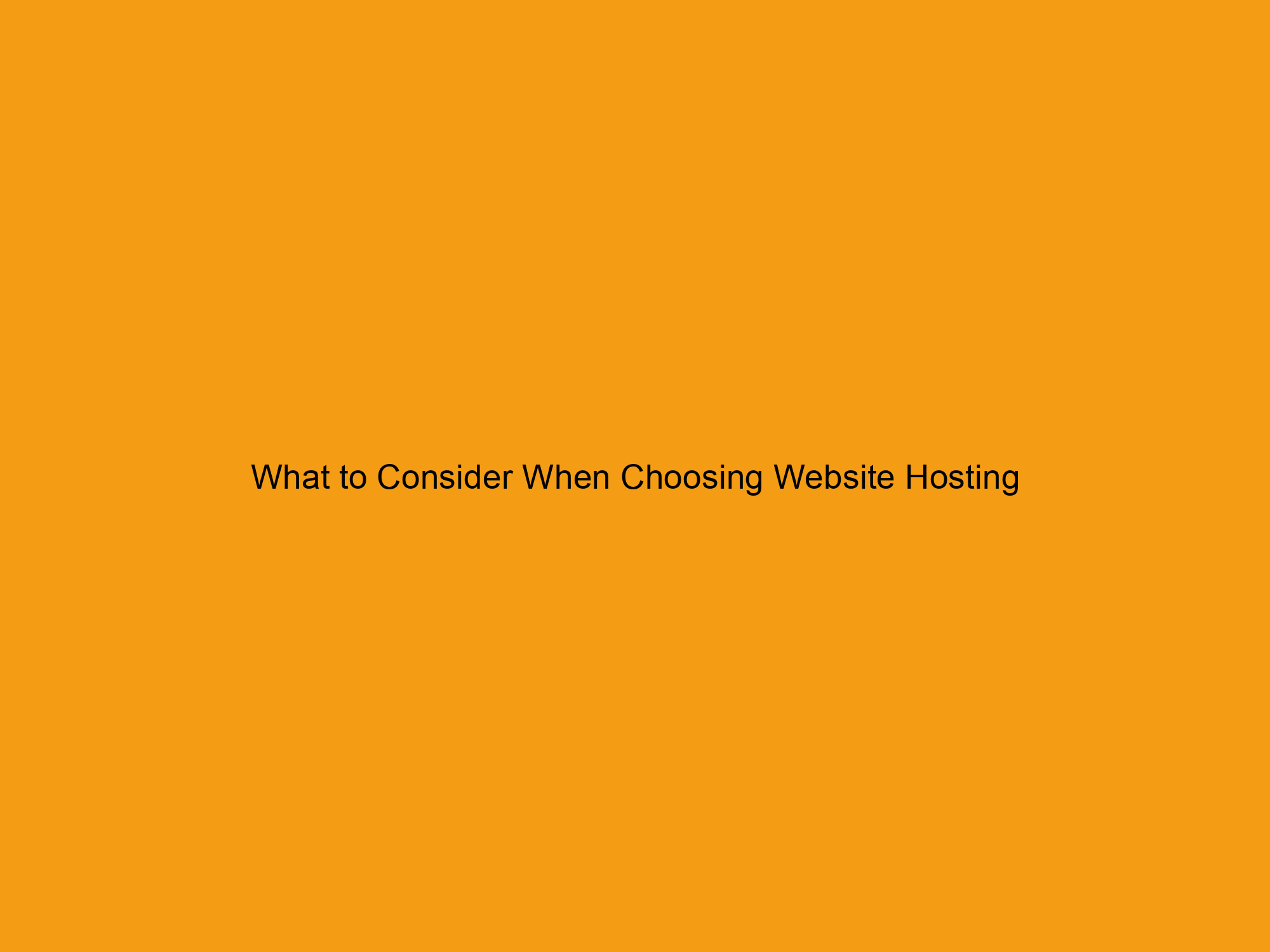Hosting is a huge part of what makes a website good, and is a mandatory part of getting a website live. A website must be on a server that is constantly connected to the internet, so it can send information to any computer that asks for it at any given time.
So what exactly is hosting, and what should I look for?
If you want to host your own website there are multitudes of hosts to chose from. But how do you know which ones are reputable? Or which are going to disappear overnight?
The site that you reach should strike you to be good quality e.g. load swiftly and be visually appealing, and everything should work smoothly. If any of the above elements are lacking move onto your next option.
Resources
A host should offer only a limited amount of space and bandwidth, about 100MB space, and 2GB will be more than enough for any standard site (at least at the outset). Anyone offering Unlimited space is not going to last, and is not going to manage their resources wisely, meaning you will almost certainly be disappointed.
Where should your host be?
If your customers are primarily UK based then UK servers make sense, because this means the information only has to travel a short distance. (Instead of to the USA and back again.) This will greatly minimise the time it takes your site to load. (Average 56K users will not wait more that 20 seconds for a page to load). I personally will only wait about 5 seconds, because if it loads slowly it will probably all load slowly.
How to tell the good from the bad?
Open a support ticket and ask the provider any questions or queries you may have. They should respond quickly and with plenty of necessary sensical information that’s not too weighed down with incomprehensible techno jargon. Bear in mind these are the people you will be contacting when things are not going to plan, so you need to know they are both reliable and available.
We recommend you purchase just one month, by paying for just a month you can see how good or bad the hosting is without spending much money.
We highly recommend Cpanel (linux based) hosting as opposed to Plesk (Microsoft based)
Do a Whois look-up on their domain name.
A Whois look up can be rather in depth, but can also provide a lot of interesting information, which will save you downtime in the long run. All you do is copy and paste the prospective hosting provider’s URL into the whois look-up. It will then search to find the record of who owns the domain, and provide you with the registered details of the site.
What to look for in the Whois results:
Are they a registered company? If they are they will probably be here for a while.
How long has the domain been registered? and how long until it expires? Most good hosting companies will have been around a while and have learnt from their mistakes. Also it’s possible that if the domain expires in a year, then the URL is only registered for a year, which would make me wary of their credibility. Expect your host to have a domain for a long period, or at least to renew it well in advance.
Are their nameservers the same as the domain? If not, you are looking at a reseller not the actual owner (leaser) of the server. This means if there is a problem with the servers then you are most unlikely to hear about it until your site and email is offline. Paving the way for all sorts of other issues which can get in the way of resolving problems. Additionally its far more likely that the reseller will just vanish over night. Basically try to get to the source of the hosting, if you are managing it yourself. The prices might be higher but the service will be better.
Where are they registered to? clearly if they claim to be UK based but actually have their domain register to an address in the US then they might not be throwing straight dice. Additionally watch out for hosts that have UK offices, but operate servers in a data center in the USA, or similar.

